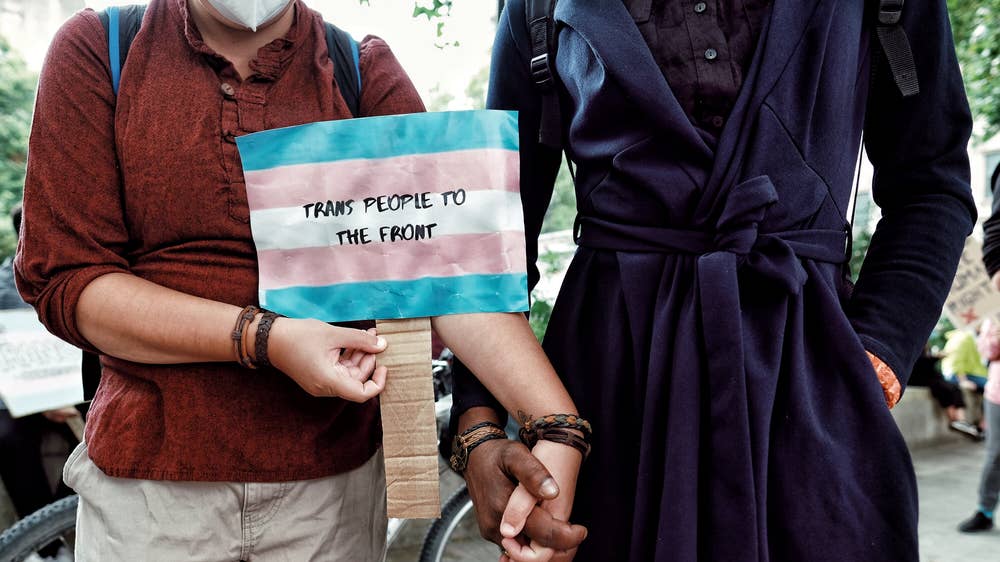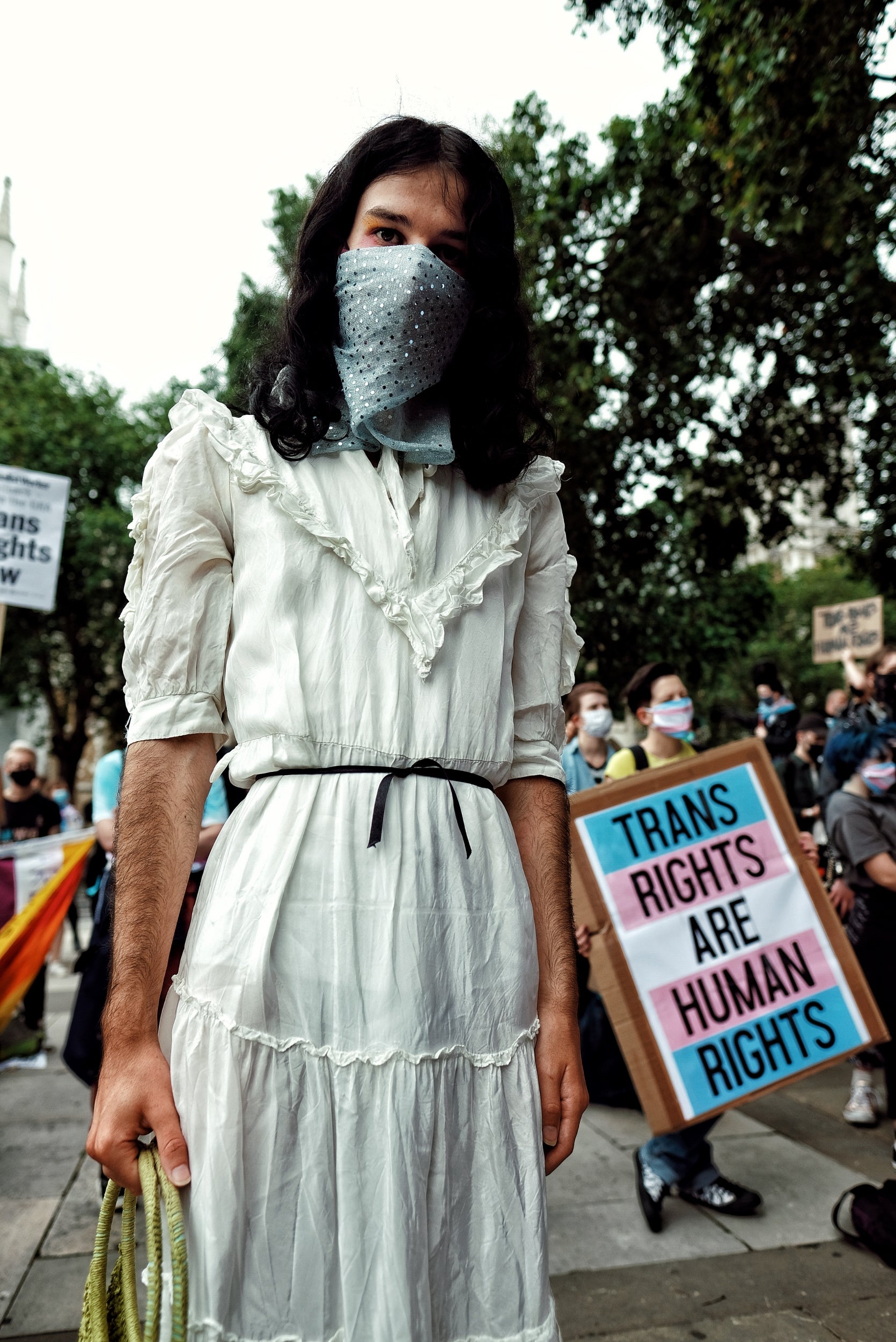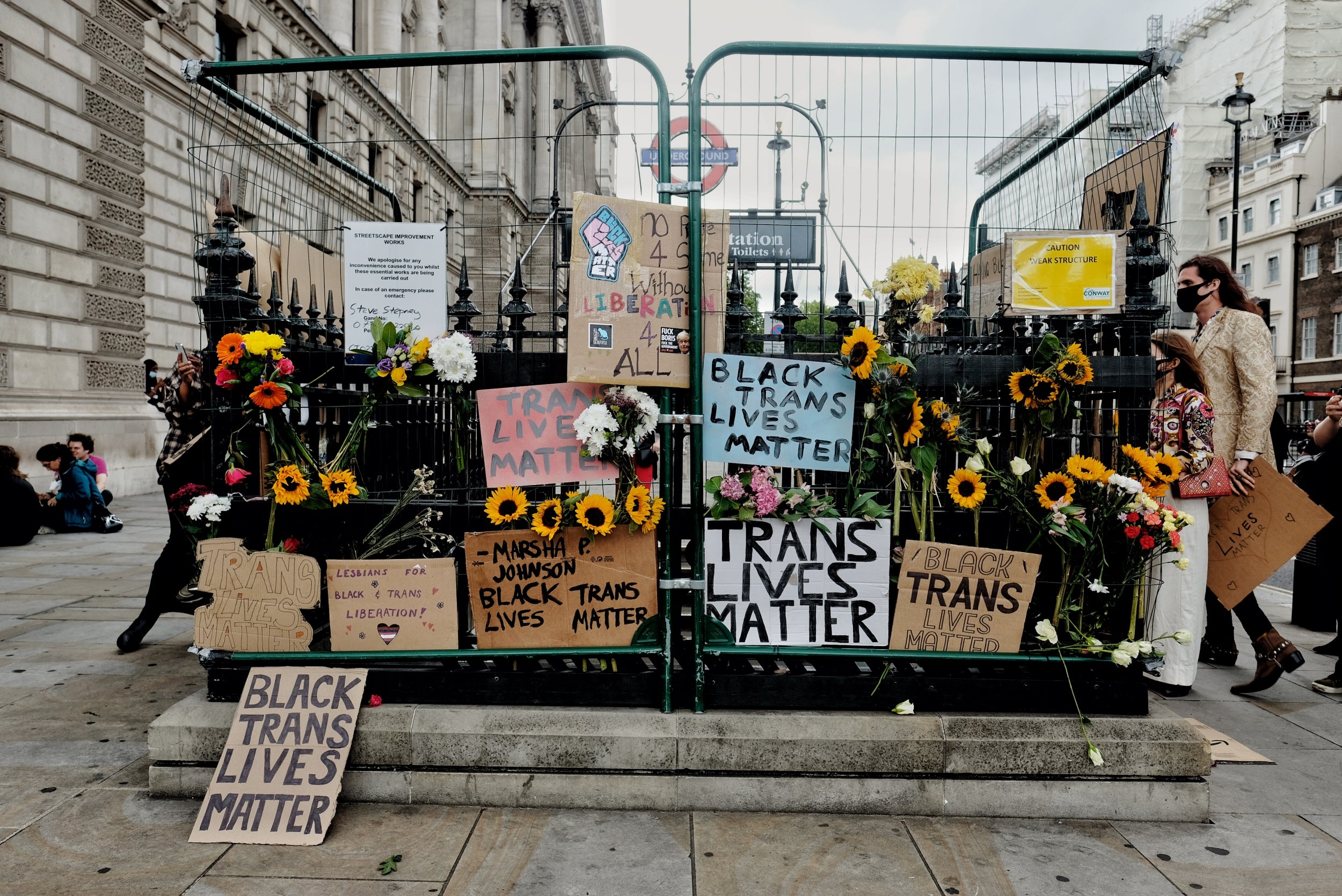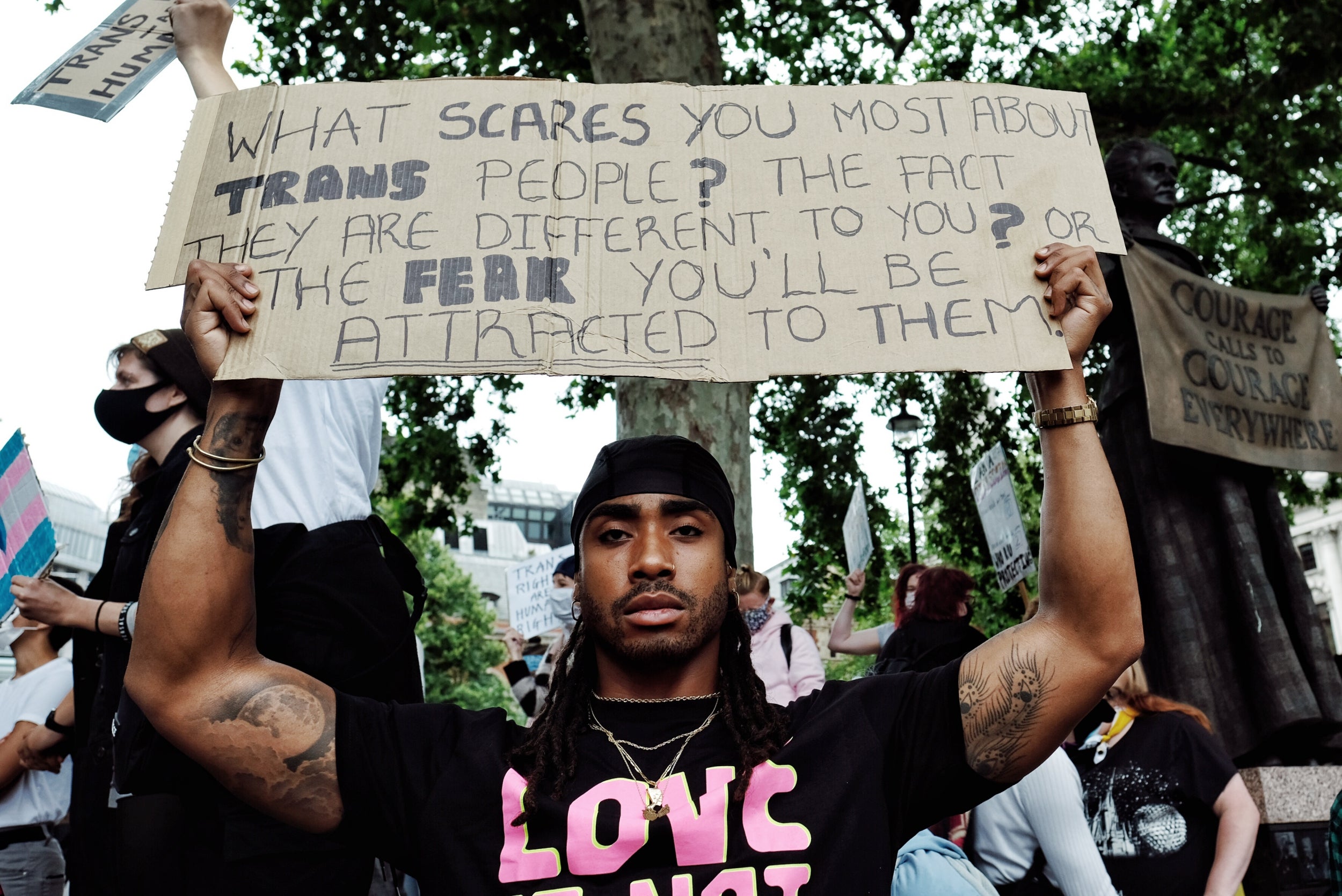The trans campaigners fighting for their right to be legally recognised
Yas Necati and Angela Christofilou explore how trans activists are trying to reform the gender recognition act
Trans rights: London protestsShow all 20




Over the past few weeks, there have been marches across the country for transgender rights. The protests follow government proposals to scrap changes that would improve the legal rights and recognition of trans people. Campaigners are concerned about rollback on changes to the Gender Recognition Act (GRA) 2004. The GRA is essentially the bit of legislation that allows trans people to legally change their gender.
“The protest was created in order to make a strong, visible stand against the government's proposals that make it clear they pose a serious threat to the health and well-being of trans people,” says Thaniel Dorian, who started one of the London protests. “For a lot of people it was the first time that they had ever felt safe and proud to be transgender in the UK, and the government should feel obligated to ensure that people feel that way every day.”
Despite 92 per cent of trans people being interested in a gender recognition certificate, currently only 12 per cent have one. Under the current act, it is a lengthy and difficult process for someone to change their legal gender. Trans people must have a medical diagnosis of “gender dysphoria”. The government website states that “this is also called gender identity disorder, gender incongruence or transsexualism”. The current legislation makes very explicit that being trans is considered a medical disorder. “This is the section 28 for our generation,” says one trans man, Charlie. “I’m scared for trans youth. A lot of us are old and used to this level of hatred, but there are young people who are desperate to be themselves and all they see is their government trying to remove their rights.”
Trans people must also prove to a panel of medical professionals that they have lived in their gender for at least two years. Reforms to the GRA would make the process of changing gender on legal documents much easier, with no need to be diagnosed by doctors or go through lengthy consultations.
Campaigners are also asking for non-binary people to be recognised under law. Pip Gardner, a non-binary person who works with LGBTQ+ young people, says “I need GRA reform which recognises me legally as not male and not female. When I apply for ID documents, when I renew my car insurance, and so many other things, I have to lie about my gender.”
Read more

Yas Necati and Angela Christofilou explore how trans activists are trying to reform the gender recognition act
Trans rights: London protestsShow all 20




Over the past few weeks, there have been marches across the country for transgender rights. The protests follow government proposals to scrap changes that would improve the legal rights and recognition of trans people. Campaigners are concerned about rollback on changes to the Gender Recognition Act (GRA) 2004. The GRA is essentially the bit of legislation that allows trans people to legally change their gender.
“The protest was created in order to make a strong, visible stand against the government's proposals that make it clear they pose a serious threat to the health and well-being of trans people,” says Thaniel Dorian, who started one of the London protests. “For a lot of people it was the first time that they had ever felt safe and proud to be transgender in the UK, and the government should feel obligated to ensure that people feel that way every day.”
Despite 92 per cent of trans people being interested in a gender recognition certificate, currently only 12 per cent have one. Under the current act, it is a lengthy and difficult process for someone to change their legal gender. Trans people must have a medical diagnosis of “gender dysphoria”. The government website states that “this is also called gender identity disorder, gender incongruence or transsexualism”. The current legislation makes very explicit that being trans is considered a medical disorder. “This is the section 28 for our generation,” says one trans man, Charlie. “I’m scared for trans youth. A lot of us are old and used to this level of hatred, but there are young people who are desperate to be themselves and all they see is their government trying to remove their rights.”
Trans people must also prove to a panel of medical professionals that they have lived in their gender for at least two years. Reforms to the GRA would make the process of changing gender on legal documents much easier, with no need to be diagnosed by doctors or go through lengthy consultations.
Campaigners are also asking for non-binary people to be recognised under law. Pip Gardner, a non-binary person who works with LGBTQ+ young people, says “I need GRA reform which recognises me legally as not male and not female. When I apply for ID documents, when I renew my car insurance, and so many other things, I have to lie about my gender.”
Read more

Boris Johnson ‘betraying’ trans people by scrapping gender law plan
The Outside Project, the UK’s first homeless shelter for LGBTQ+ people, is one of the groups campaigning for GRA reform. Its founder, Carla Ecola, feels the delay on approving changes is one of many examples of the government ignoring the needs of LGBTQ+ people: “Ultimately this needs to be resolved so that we can focus on our community’s crisis needs of housing and healthcare,” she says.
Government announcements about the GRA reform have been delayed a number of times, and are now due next week. Tom, a trans protester, says: “Like those who marched against Section 28 in the late 1980s, we must resist this attack on the dignity of trans people, or risk our current moment becoming a stain in the history of LGBT liberation.”
The Outside Project, the UK’s first homeless shelter for LGBTQ+ people, is one of the groups campaigning for GRA reform. Its founder, Carla Ecola, feels the delay on approving changes is one of many examples of the government ignoring the needs of LGBTQ+ people: “Ultimately this needs to be resolved so that we can focus on our community’s crisis needs of housing and healthcare,” she says.
Government announcements about the GRA reform have been delayed a number of times, and are now due next week. Tom, a trans protester, says: “Like those who marched against Section 28 in the late 1980s, we must resist this attack on the dignity of trans people, or risk our current moment becoming a stain in the history of LGBT liberation.”

No comments:
Post a Comment